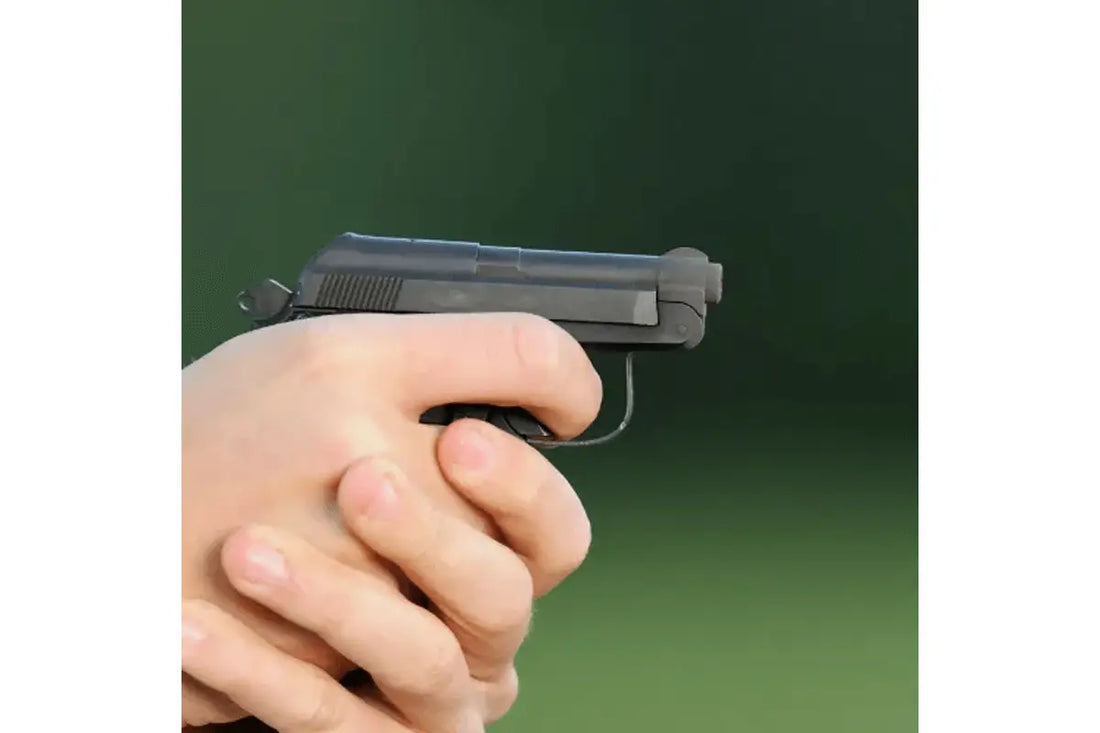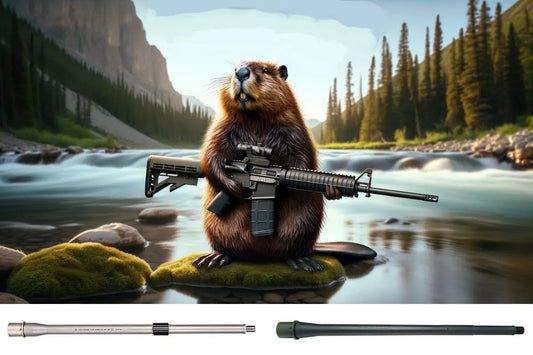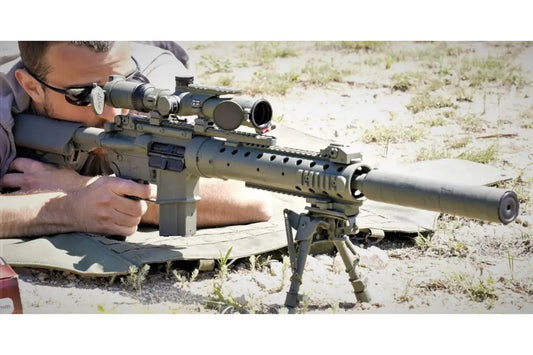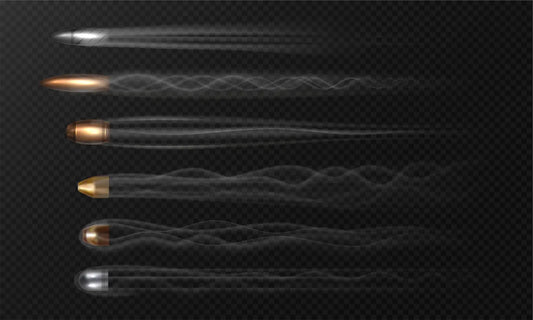
Is the .380 ACP (9mm Kurz) a Viable Caliber for Self-Defense? Pros, Cons, and What You Should Know
Is the .380 ACP (9mm Kurz) a Viable Caliber for Self-Defense? Pros, Cons, and What You Should Know
When it comes to choosing a self-defense caliber, gun owners have a variety of options, each with its own set of benefits and drawbacks. One caliber that often sparks debate among firearm enthusiasts is the .380 ACP, also known as the 9mm Kurz ("Kurz" meaning "short" in German). But is this compact round a viable choice for self-defense, or does it fall short of other popular calibers?
In this article, we’ll break down the history, performance, advantages, and disadvantages of the .380 ACP, and compare it with other commonly used rounds. If you're considering a .380 ACP for concealed carry or personal protection, this guide will help you make an informed decision.
- A Brief History of the .380 ACP
The .380 ACP was designed by John Moses Browning and introduced in 1908. Since its inception, it has gained popularity for use in compact, lightweight pistols. The caliber was initially intended for self-defense and police work, particularly in Europe, where it earned the nickname "9mm Kurz."
Throughout history, the .380 ACP has been trusted by military officers, law enforcement, and civilians, especially in Europe. It gained traction in the U.S. as a go-to caliber for small, easily concealable handguns, making it a popular choice for those looking for an effective yet manageable self-defense round.
- Ballistic Performance: Is It Powerful Enough?
One of the biggest concerns about the .380 ACP is its ballistic performance compared to larger calibers. The general consensus is that while the .380 ACP is effective at close range, it doesn’t offer the same stopping power as a 9mm Luger or .45 ACP. However, modern advancements in bullet design have improved the performance of the .380 ACP in recent years.
- Muzzle Velocity and Energy: The average .380 ACP round fires a bullet between 85 and 100 grains at velocities around 900 to 1,050 feet per second (fps). While this is slower than the 9mm Luger (which typically travels around 1,100 to 1,300 fps), it’s still sufficient for self-defense scenarios at close distances.
- Penetration: The FBI recommends 12 to 18 inches of penetration in ballistic gel to reliably stop a threat. Many .380 ACP loads, such as the Hornady Critical Defense and Federal HST, have proven capable of reaching this benchmark.
While the .380 ACP may not be the most powerful caliber on the market, its performance is often deemed “good enough” for personal protection, especially when paired with high-quality defensive ammunition.
- Advantages of the .380 ACP for Self-Defense
Despite its lighter ballistic profile, the .380 ACP brings several advantages that make it appealing for self-defense, especially for concealed carry. Let’s explore the key benefits:
- a) Portability and Concealability
The primary reason people choose .380 ACP firearms is their compact size. Firearms chambered in .380 ACP, like the Ruger LCP II, Smith & Wesson M&P Bodyguard 380, and Glock 42, are lightweight and small enough to carry discreetly, even in a pocket or small holster.
- b) Manageable Recoil
The .380 ACP has significantly less recoil compared to larger calibers like the 9mm Luger or .40 S&W. This makes it easier for shooters, especially those with less experience or physical strength, to control the firearm and stay on target in a high-stress situation. Firearms like the SIG Sauer P238 are renowned for their smooth shooting experience, making them ideal for those who are recoil-sensitive.
- c) Higher Capacity
In many cases, .380 ACP firearms can hold more rounds than larger-caliber handguns due to the smaller size of the ammunition. For example, the Beretta 85FS Cheetah holds 8+1 rounds, providing more opportunities to neutralize a threat if necessary.
- d) Quieter Report
While sound suppression isn’t a top priority for most self-defense situations, the .380 ACP is noticeably quieter than larger calibers. This could be an added benefit if you’re concerned about firing in confined spaces like a home, where gunfire noise can be disorienting.
- Drawbacks of the .380 ACP for Self-Defense
Like any caliber, the .380 ACP has its disadvantages. Here are a few of the most commonly cited drawbacks:
- a) Lower Stopping Power
Compared to 9mm Luger, .40 S&W, and .45 ACP, the .380 ACP has less stopping power. While shot placement and bullet type play crucial roles in a round’s effectiveness, the relatively lower velocity and energy of .380 ACP rounds can make it less reliable in incapacitating a threat with one shot.
- b) Limited Range
The .380 ACP is most effective at close distances, typically under 15 yards. Beyond this range, accuracy and power drop off significantly. In contrast, larger calibers like 9mm or .40 S&W maintain better performance at extended distances.
- c) Price of Ammunition
While not exorbitantly expensive, .380 ACP rounds can be pricier than 9mm Luger, especially in times of high demand. If cost is a significant factor for you, it’s worth considering how the price of ammo could affect your regular practice sessions.
- d) Fewer Ammunition Options
While there are several high-quality defensive rounds available in .380 ACP, the selection is not as extensive as 9mm. Popular choices like Hornady Critical Defense, Speer Gold Dot, and Federal HST provide solid performance, but the overall range of options is smaller compared to 9mm Luger.
- How Does .380 ACP Compare to 9mm Luger and Other Popular Calibers?
To truly understand whether .380 ACP is viable for self-defense, it’s helpful to compare it to other popular calibers.
- a) .380 ACP vs. 9mm Luger
The most common comparison is between the .380 ACP and 9mm Luger. While both rounds are small and designed for pistols, the 9mm Luger offers more velocity, energy, and stopping power. However, it also produces more recoil and is generally found in larger firearms. If you prioritize concealability and manageable recoil, .380 ACP may be a better fit. For those who prefer more power, 9mm is the superior choice.
- b) .380 ACP vs. .40 S&W
The .40 S&W is a high-velocity round with excellent stopping power, making it a popular choice for law enforcement. However, it comes with significantly more recoil and is usually found in bulkier firearms. The .380 ACP’s advantage in this comparison is its portability and ease of use, though it sacrifices some power.
- c) .380 ACP vs. .45 ACP
The .45 ACP is one of the most powerful pistol rounds available, known for its stopping power and deep penetration. However, it’s also one of the hardest-hitting rounds in terms of recoil. If you’re a shooter looking for something lighter, more concealable, and easier to manage, the .380 ACP offers a more practical everyday carry option.
- Popular .380 ACP Firearms for Concealed Carry
If you’re sold on the .380 ACP, here are a few of the most popular firearms chambered in this caliber, ideal for self-defense:
- Ruger LCP Max: One of the most compact and popular options, the Ruger LCP Max offers 10+1 rounds of .380 ACP in a pocket-sized pistol.
- Glock 42: Known for its reliability, the Glock 42 is a solid choice for those looking for a slightly larger .380 ACP that still maintains concealability.
- SIG Sauer P238: The P238 offers a premium shooting experience with its smooth operation, making it a favorite among those who prioritize comfort in a self-defense firearm.
- Smith & Wesson M&P Bodyguard 380: With an integrated laser sight, this lightweight pistol makes target acquisition easier in high-stress situations.
- When .380 ACP Might Be the Best Choice
The .380 ACP is an excellent choice for specific situations, especially for those who value concealability, lighter recoil, and ease of use. It’s a solid option for individuals with smaller frames, those who may struggle with controlling larger calibers, and anyone looking for a low-profile daily carry firearm.
If you prioritize shot placement, practice regularly, and choose the right ammunition, the .380 ACP can be a highly effective self-defense round. Just remember that like any firearm choice, it comes down to personal preference, comfort, and the ability to consistently hit your target.
In the end, the .380 ACP (9mm Kurz) remains a viable choice for self-defense, especially for those who value ease of carry and manageability over sheer stopping power. Its performance has improved significantly with modern defensive ammo, making it a contender in the self-defense world, especially in compact firearms.
Still, if you’re considering purchasing a .380 ACP firearm, make sure to practice regularly and choose high-quality defensive rounds that maximize the caliber’s potential. If you’re ready to invest in a .380 ACP handgun or ammunition, PrimaryArms.com offers a wide selection of top brands at competitive prices.




